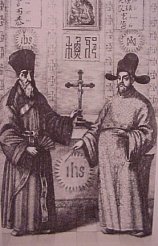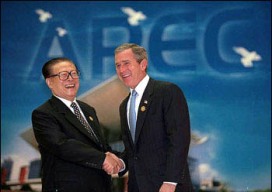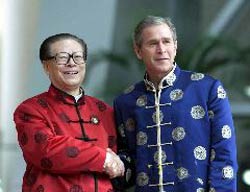Recently I discovered an on-line tool that is very helpful when you want to pidginize even the deepest and wildest thoughts. It is conveniently called Lost in translation and the pidginization it produced when being fed the title of my blog, was:
“With the determination of pidgin of modernized Blong”
Lovely.
Although the compass needle determinedly points north (or south in some interpretations) – there is a relic in many languages that still reveals a more primordial strategy of finding our way and determining our place in the universe: the word orientation.
“To orient” literally means “to find east” – and was first used in the design of buildings, which in Egypt, Mesopotamia, Greece and Rome, often faced east, the direction of the rising sun (interestingly enough, there is a completely different rule in operation in traditional Chinese architecture, where buildings were supposed to open to the south).
From these beginnings on finding one’s way and determining one’s place in the world has been closely correlated to the aspiration of finding one’s Orient. To find the Orient means to be able “to orient” oneself. But there is an inevitable twist in these very human aspirations. In order for “us” to be able to orient ourselves, the Orient should remain fixed and unmoving, unchanged in time as much as in space. It should also remain completely different from “us”, and by all these it serves as an “orientation” point in temporal, spatial and, most importantly, in cultural terms.
This fixation of Orient as the Non-Occident, the temporally and spatially unmoving and unchanging Other, serves as a per negationem definition of the likewise constructed Occident. When sets of these presumptions are linked to a system of unequal power relations, the result usually is the creation of a certain ideological discourse that Edward Said calls Orientalism.
Said’s Orientalism, however, is a phenomenon limited in both time and space. His analysis focuses mostly on the colonialism of the 19th century onwards as it was representing the Western Asia and North Africa, i.e. the “Middle-East” countries.
The scope of the orientalizing ideology is, contrary to the strict interpretation of Said’s theory, much wider. Orientation – or better orientalization – is the process through which identities are constructed, a process that defines the entity by defining its Other. In general terms, this process of ascribing to Other the qualities and characteristics that reflect those of one’s own, and firmly instisting on the safety of the Other’s unchangeability, could be called “Otherization”. Orient is therefore just one particular case of the Other, and Orientalism just one of the historical versions of “Otherism“.
Language isn’t the only medium we use in the pidginization of identity. Centuries ago, when Europeans set foot on the Chinese territory, they first used clothing to show their willingness for what will later be called “cultural exchange”. After the initial not-so-very felicitous faux-pas, when Jesuit missionaries tried to win recognition from their Confucian counterparts by dressing like Buddhist monks, they finally started to dress like Confucian scholars, as it is obvious on this picture of Italian Jesuit Matteo Ricci and a Chinese convert:
(Ricci is the one on the left …)
All kinds of ethno-styles in contemporary fashion can also be understood as some kind of identity seeking process, although it is not directly intended to communicate with the cultural Other. Supposedly “Ethnic”, “Oriental”, “Tribal” or “Tropic” styles don’t refer to a particular cultural area, but mostly to some set of one’s own wishful (or fearful) imageries. This is a pidginization of sorts, but a slightly different one.
Anyhow, there still are some relics of the historical version of style-pidginization, when two cultures (or economies) meet:
There always are some who struggle to protect the (hypothetical) purity of something. In this case English:
no pidgin please no chinglish please no slinglish please
There are, however, many more that don’t agree. Especially for the speakers of English, the pidginization seems almost inevitable. Here’s a list of some of these hybrids (secretly including my personal favorite ..):
Chinglish, Franglais, Czenglish (surely J. Cimrman used it occasionally, too), BBC English, Hinglish, Spanglish, Engrish, Poglish, Taglish, Globish (an interesting, though bizzare attempt), Goleta English, Namlish, Konglish, Tarzan English, Denglisch, Caló, Dog Latin …
There is no such thing as a pure identity, isolated and self-originating, no identity-in-itself. Identities – past and present – are a result of a process of mutual pidginization: transforming one’s own to be understood by the other, mirroring the other to express oneself, understanding by recognizing transformed pieces of one’s own in the other.
All identities are essentially pidginized, because the purpose of an identity is never identity itself but identification, the process of becoming an entity that belongs.
There is one word among the many hybrids in pidgin languages that expresses perfectly the basic idea of pidginization: TO BLONG. In Shanghai Chinese pidgin it meant both “to be” and ” to belong”, conveying the closeness of these two terms. Identity is a pidginized entity, to be is to belong.


